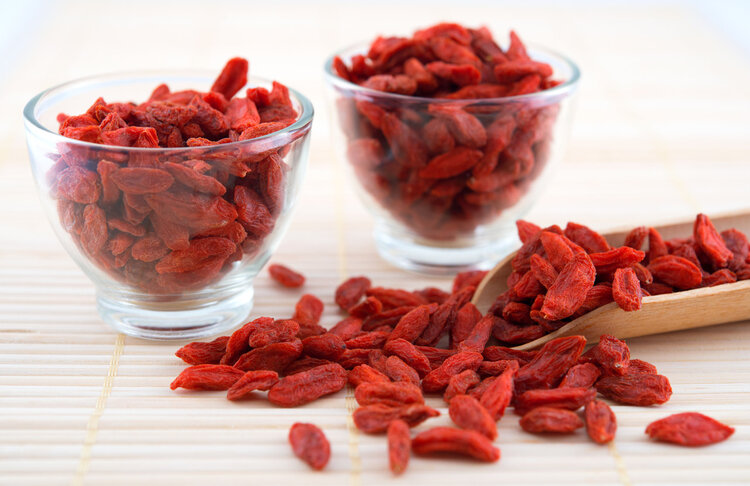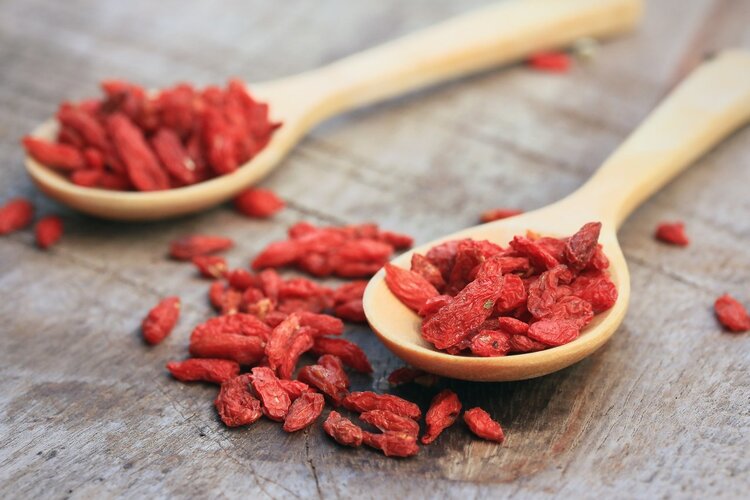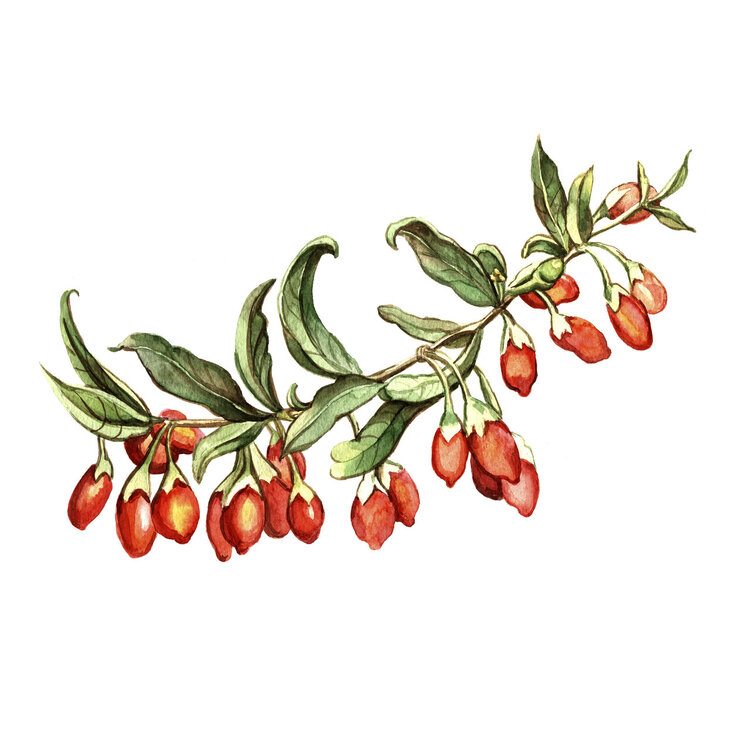Who Gave Black Goji Berries the Courage to Cost Thousands of Yuan per Pound?
Many people have likely tried goji berries, but fewer have tasted black goji berries. As the name suggests, black goji berries are a black variant of the traditional red goji berry. However, their price is far from ordinary, having once reached thousands of yuan per pound, earning them the nickname "black gold."
Behind the high price tag are claims of miraculous "health benefits." Many so-called "experts" tout black goji berries for their antioxidant and anti-cancer properties. But are these claims true?

1. What Are Black Goji Berries? Can They Really Fight Cancer?
Black goji berries are the dried fruits of *Lycium ruthenicum*, a wild plant in the Solanaceae family. Known as "Kara Alkat" in Uyghur medicine and "Pangma" in Tibetan medicine, they are recorded in the *Uyghur Medicinal Records* as having properties that strengthen the kidneys, nourish the liver, improve vision, aid digestion, boost brain function, combat aging, and regulate menstruation.
Although black goji berries are now cultivated, their yield remains unstable, and wild varieties are scarce. As the saying goes, "scarcity drives value," which is why many believe black goji berries are more nutritious than their red counterparts.
In reality, both red and black goji berries belong to the same plant family and share most of their components. However, black goji berries contain higher levels of anthocyanins and certain trace elements, potentially offering slightly better benefits in terms of antioxidant effects, anti-atherosclerosis, immune enhancement, and lipid reduction. That said, there is insufficient clinical research to confirm any extraordinary health benefits of black goji berries, so their efficacy should not be overstated.
Can Black Goji Berries Really Antioxidize and Fight Cancer?
Professor Shi Weiqun, a renowned TCM physician at Zhejiang Xinhua Hospital, notes that while the *Compendium of Materia Medica* mentions black goji berries for treating heart heat, claims of their anti-cancer properties are exaggerated. Although black goji berries have medicinal value, there is no clinical evidence to support their ability to combat tumors. The anti-cancer narrative is largely a marketing ploy.

Moreover, the antioxidant capacity of black goji berries is not as potent as often claimed. Their antioxidant properties primarily come from anthocyanins, which are also found in high concentrations in purple-blue fruits and vegetables like eggplants, blueberries, grapes, and kale. Therefore, there's no need to blindly follow the trend of consuming black goji berries; moderate intake is sufficient.
2. New Findings on Goji Berries: 28g Daily May Help Prevent Eye Diseases
Of course, as a traditional Chinese herb, goji berries do have their merits, even catching the attention of foreign researchers. It's often said that goji berries improve eyesight. Low levels of macular pigment optical density are a risk factor for age-related macular degeneration, and goji berries may help boost protective eye pigments.

In December of last year, a research team from the University of California, Davis, published a small clinical study in *Nutrients*. The study recruited volunteers and, after screening, included 31 participants divided into two groups: an experimental group (consuming 28g of goji berries five days a week) and a control group (taking a supplement containing 6mg of lutein and 4mg of zeaxanthin).
The results showed that consuming 28g of goji berries five days a week for three months effectively increased carotenoid levels, outperforming the supplement group. This suggests that a small handful of goji berries daily may help prevent or delay age-related macular degeneration.

3. Is It Better to Eat Goji Berries Directly or Brew Them in Water?
Goji berries contain a variety of essential nutrients: approximately 20% protein, 10% fat, 40% sugar, and the rest comprising minerals, trace elements, and vitamins. Per 100 grams, goji berries contain 3.39 mg of carotene, 0.23 mg of vitamin B1, 0.33 mg of vitamin B2, 1.7 mg of niacin, and 3 mg of ascorbic acid.
Opinions vary on how to consume goji berries. Some say eating them dry is best, while others argue that brewing them in water maximizes their benefits. In reality, most of the nutrients in goji berries cannot be fully extracted through soaking. To fully reap their health benefits, it's best to eat them directly. Alternatively, you can brew them in water and then consume the berries.

4. How to Identify High-Quality Goji Berries?
Since dry consumption is recommended, selecting clean, high-quality goji berries is crucial. Here are some tips for choosing the best goji berries:
1. Color Isn't Everything:
Fresh goji berries vary in color depending on their origin, but they should have a soft, glossy appearance with plump flesh. Dyed goji berries are often older stock with poor texture and no luster, despite their bright, attractive exterior. Don't be fooled by overly vibrant colors.
2. Smell Them:
For sulfur-fumigated goji berries, simply cup a handful in your hands for a moment, then smell them. If you detect a sharp, irritating odor, they've likely been treated with sulfur.
3. Taste Them:
Ningxia goji berries taste sweet with a slight bitterness in the aftertaste. Those from Inner Mongolia or Xinjiang are overly sweet, while alum-soaked berries have a bitter taste. Sulfur-treated berries will taste sour, astringent, and bitter.

While goji berries are beneficial for health, moderation is key. They are high in sugar and have a warming nature, so excessive consumption can lead to internal heat. It's recommended to limit intake to around 20g per day.
